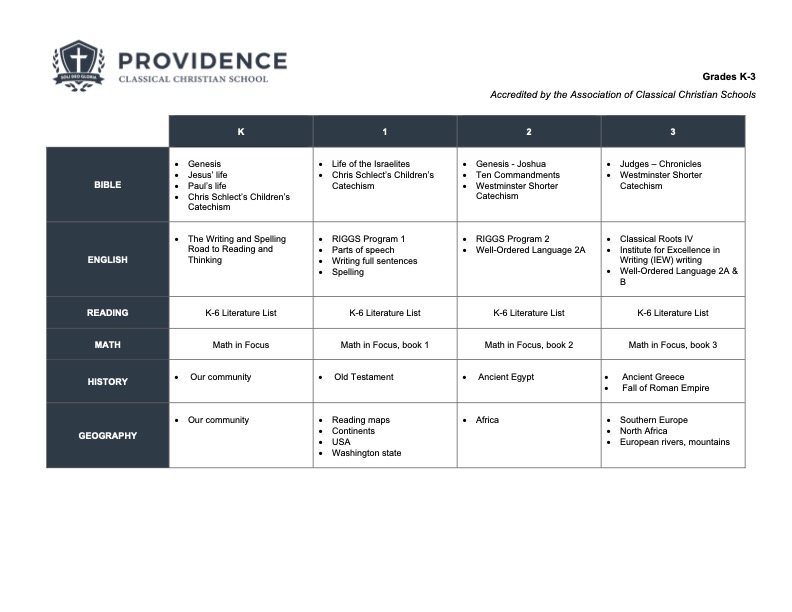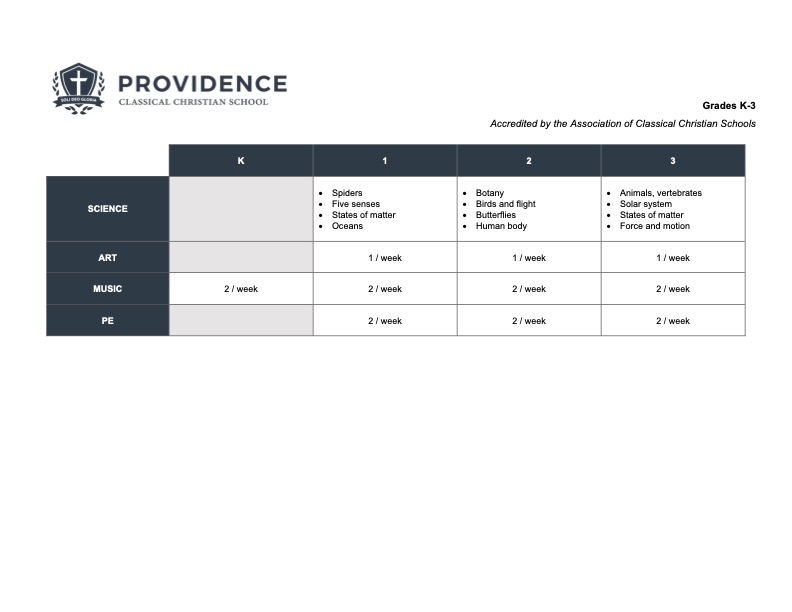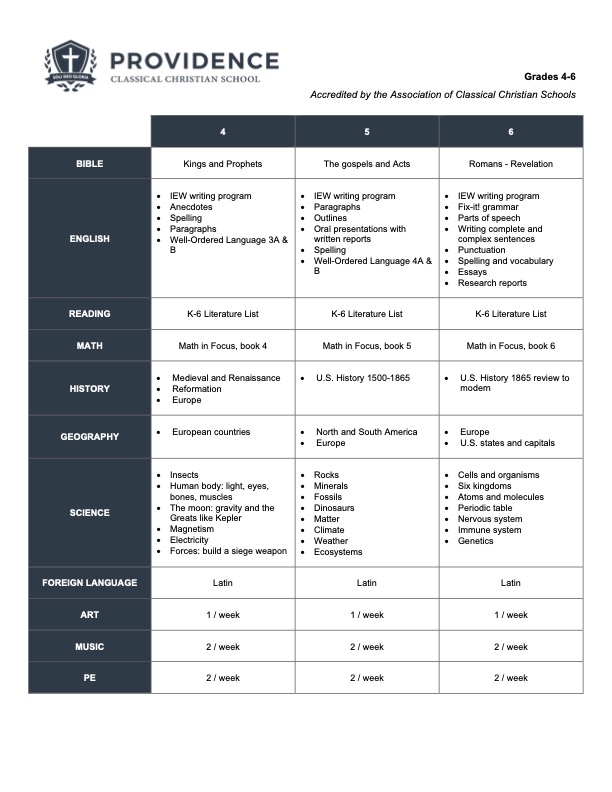Grammar (K-6)
The Grammar portion of Providence spans from kindergarten to 6th grade. Grammar students are very imaginative and creative—they want to touch, taste, feel, smell, and see while they learn—so the curriculum enables them to play games, read stories, sing songs, and create projects. They are also enthusiastic about learning new and interesting facts and have strong language skills at this age, so they easily memorize grammar, history, Latin, and science chants and songs.
Students are expected to be obedient and respectful, and teachers provide consistent and loving discipline to ensure students at the grammar level enjoy the opportunity to learn in an orderly and well-managed classroom.
Because of the discipleship model and community aspects of Providence, each student is seen as an integral part of the school. Grammar students have the opportunity to interact with students of all ages, learning from the older students and being examples to the younger ones. This close community is apparent in the hallways and through events like the annual Read-a-thon and weekly Psalm sing when all students come together for learning and fellowship.
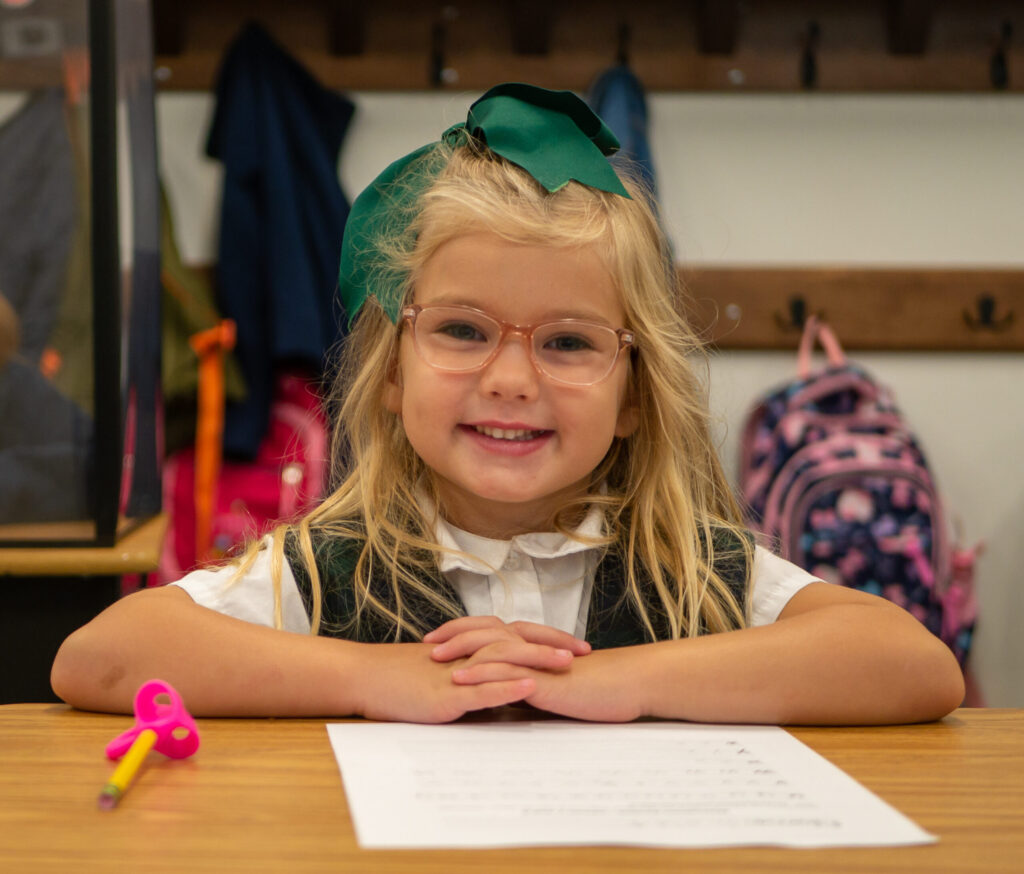
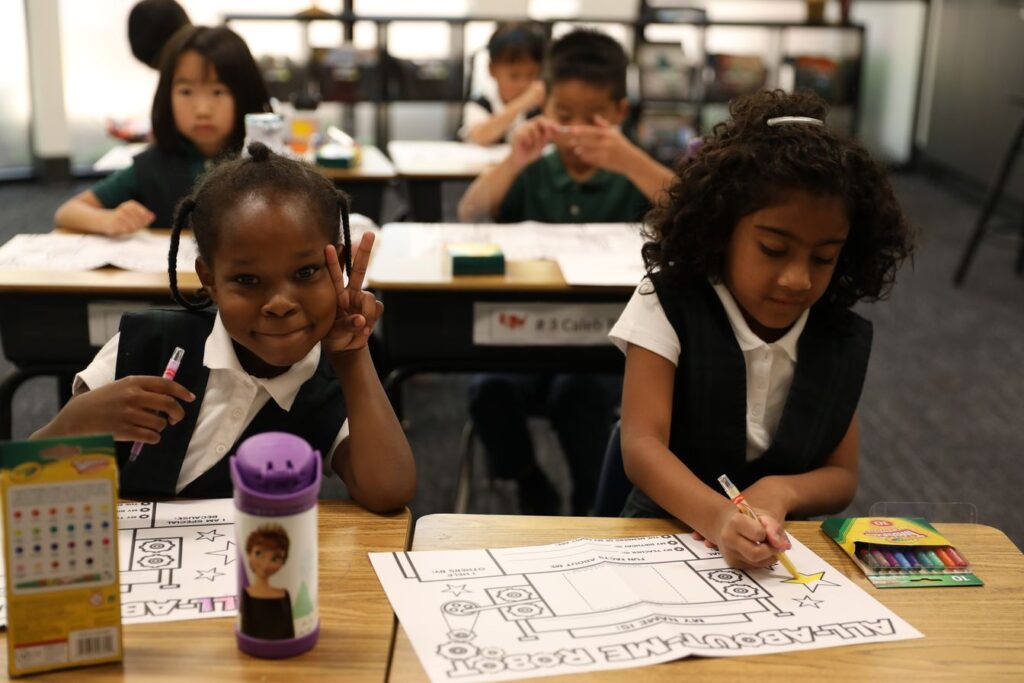
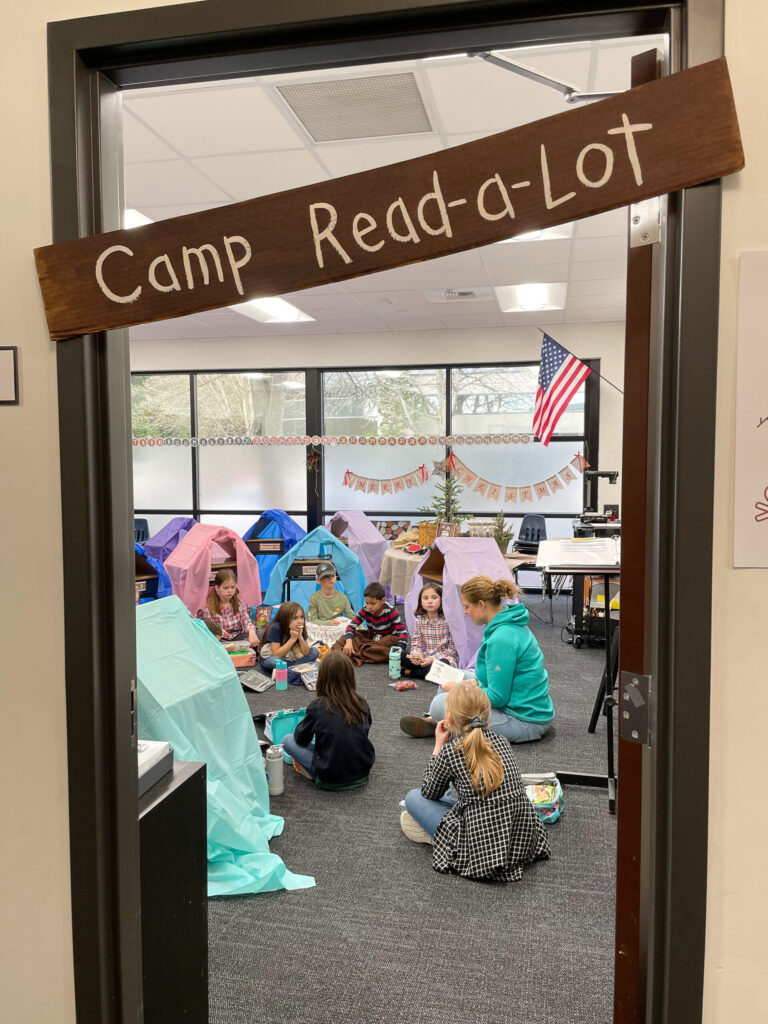
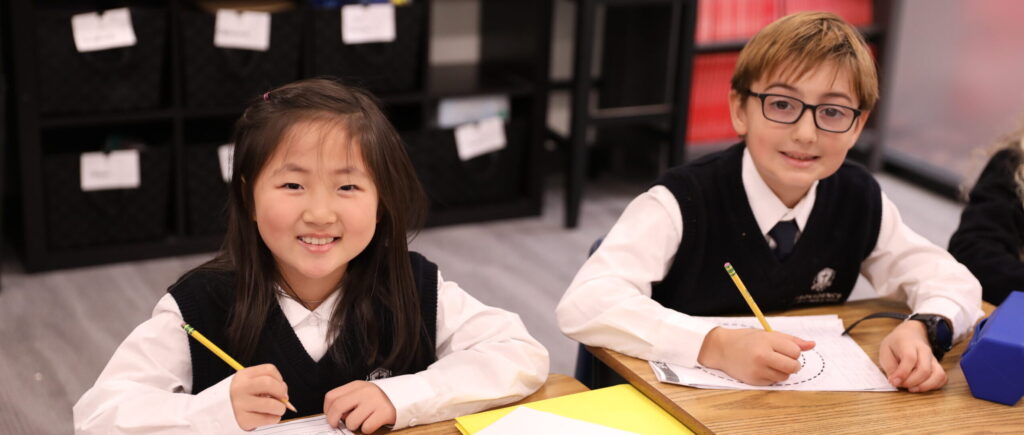
Activities
Each grammar grade participates in competitions and events that encourage community and challenge students in aspects of classical education. Here are a few examples of what grammar students are involved in:
- Bible Reading Challenge (grades 1-6). The Grammar principal challenges students to read at least a chapter of the Bible every day for 3 months. If successful, they are treated to dinner at a local restaurant.
- Speech Meet (grades 1-6). All students pick a piece to memorize and present in front of their class, matching a selected theme. They are judged on their presentation and speaking abilities. The highest-ranked students will present to the whole grammar school and participate in a speech meet against another local school. As a classical school, speaking in front of others is an important part of the curriculum and the speech meet helps students to be well-trained in the art of representing their ideas clearly to others.
- Spelling Bee (grades 1-6). All students practice and participate in a class-wide spelling bee, with winners moving on to a grammar-wide spelling bee and then to competitions with students from other schools. Students are given practice words appropriate for their grade and are encouraged to study words from the next grade level if they master their own.
- Latin Club. Optional, extracurricular activity for students interested in learning even more about Latin than the core curriculum.
- Geography Club. Optional, extracurricular activity for students interested in learning even more about geography than the core curriculum.
Curriculum
Along with our Literature List, the charts below show areas of study for each grammar grade.
Other Resources
You can learn more about the classroom supplies, reading lists, and activities for grammar on the Grammar School Resources page.
